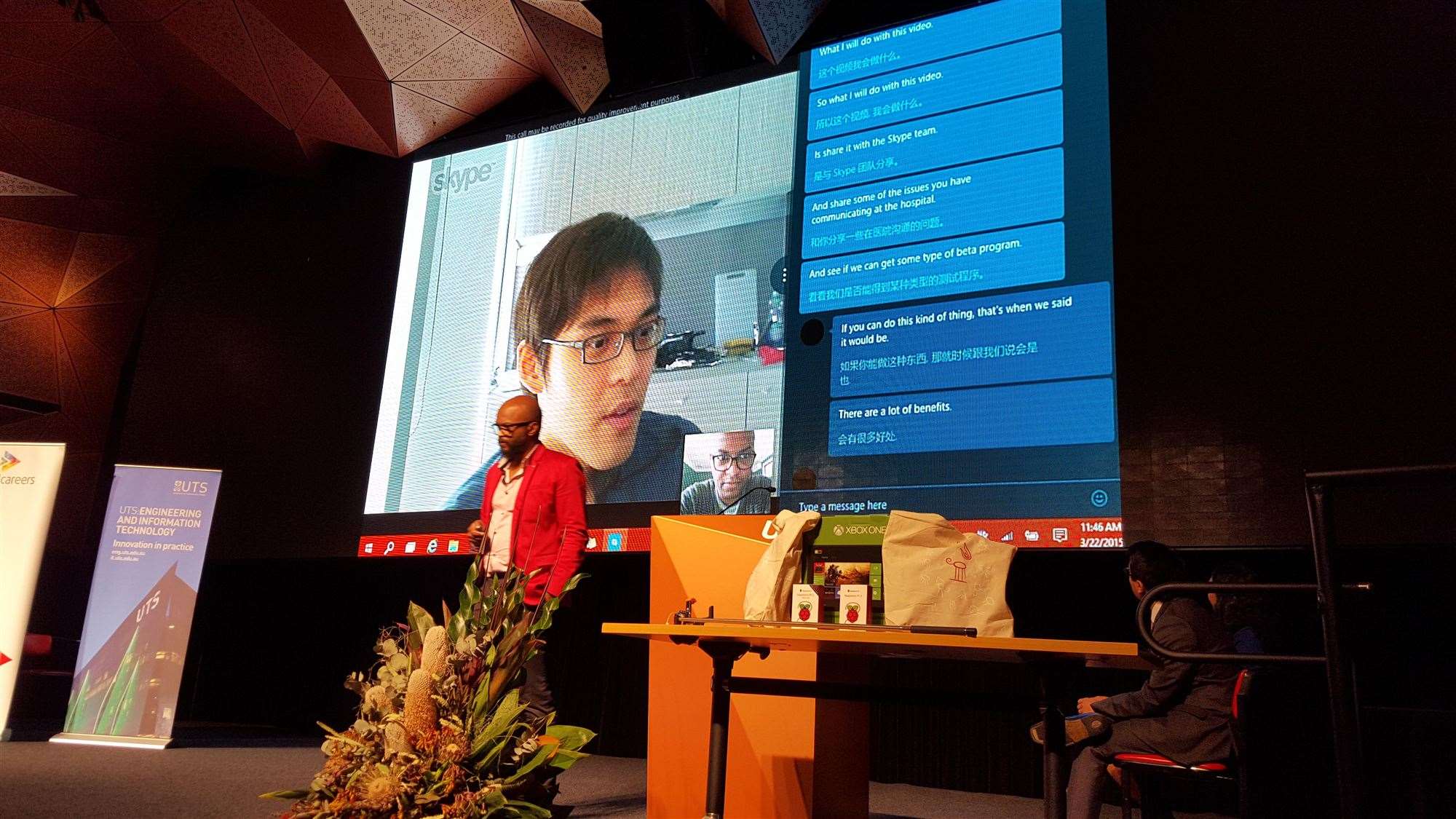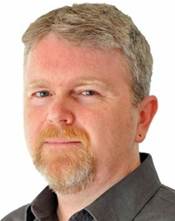This week saw the first BiG Day In event for 2016, with talks and exhibits giving students an insight into life as an ICT professional.
Now in its fifth year, and held in the Great Hall at the University of Technology Sydney, 120 schools across NSW participated with around 2000 Year 9-12 students attending.
While the career conference covers a gamut of ground related to technology and the workplace, a central theme this year was the 'Internet of Things' and how it will change the working landscape.
Speaking at the opening, ACS CEO Andrew Johnson talked about the impact of technology and the profound effect digital disruption will have a on the labour market. "Since the dawn of time the world has had problems and challenges to overcome" Johnson began, "but there's no doubt technology is going to be able to solve those problems in the future."
"Six billion devices were connected to the internet of things ten years ago and today there are 15 billion, with some estimates forecasting 200 billion by 2020." Noting the rapid pace of change, he gave the example of being able to automate life through technology, such as using an app to order food via your smartphone and have it delivered by the time you arrive home.
"If you jump on to seek.com and look at the 150k+ jobs, more than 40% are in the technology space" he continued, "there is no more dynamic industry and your skills will be highly transferable."
Victor Dominello, Minister for Innovation and Better Regulation, also spoke and talked about the demand for an ICT workforce in Australia that will outstrip one hundred thousand people in the next six years. However, he said, this is a 'conservative' estimate based on his discussions with industry, and that Australia will need more ICT graduates to meet this demand. "We are roaring towards a digital economy," he appealed.
This is a sentiment echoed on the second day with John Barilaro, Minister for Regional Development, Skills & Small Business stating that the sector "is moving at a rate we've never seen before" and that "industries we think are part of sci-fi type movies, they're on our doorstep right now." He also predicted that in 20-30 years many of today’s jobs will be drastically altered by the scope of technological change, with some jobs made obsolete while other entirely new roles will be created.
Citing the current darling of the Australian technology scene Atlassian, he called on students to think big and said the startup sector is where growth is going to be.
Presentations over the two days included representatives from Microsoft, Google, Westpac, TATA Consultancy Services, Adobe, Animal Logic and government among others, and showcased the type of careers students could pursue in ICT ranging from stereotypical roles such as programmer or electrical engineer through to business analyst, data scientist, and social media manager. If there was one take-home message over the two days it's that most jobs in the future will require ICT skills in some shape or form.
Highlights included Google's Jim Mussared, who spoke of the importance of learning basic programming skills regardless of your career, giving the example of accountants writing scripts to automate work or medical researchers writing programs to process test results. "People who program can do things ten times faster", he noted.
Microsoft's Lawrence Crumpton, Developer Platform Evangelist, introduced students to the emergent field of machine learning, and celebrated Australia's rich talent for ideas. Citing the example of CliniCloud, a successful startup by two medical students in Melbourne that promises to change home diagnosis for parents, he explained how the idea got a boost when the students participated in Microsoft's Imagine Cup and won $50k, and soon after attracted venture capital investments.
And Management Consultant Anna Hynek from Ernst & Young explored the way technology is changing business, especially the proliferation of mobile devices, observing that "companies are starting to develop smartphone applications before they develop websites."
Some 25 companies and organisations exhibited at the BiG Day In including Microsoft, IBM, WiseTech Global, Adobe, CSC, Avanade, Westpac Group, Commonwealth Bank and Optus along with a number of government departments. Students got to meet and greet with representatives employed as ICT professionals and ask the really hard questions, like what does it take to work at Google?
Funding for the conference is provided by the ACS Foundation, Digital Careers and the Australian Government. Nine more BiG Day In conferences are scheduled around Australia, with the next one to be held on the 17th March at Charles Sturt University, Wagga Wagga. For more information and for a schedule of up-coming events visit acsfoundation.com.au/bdi.











